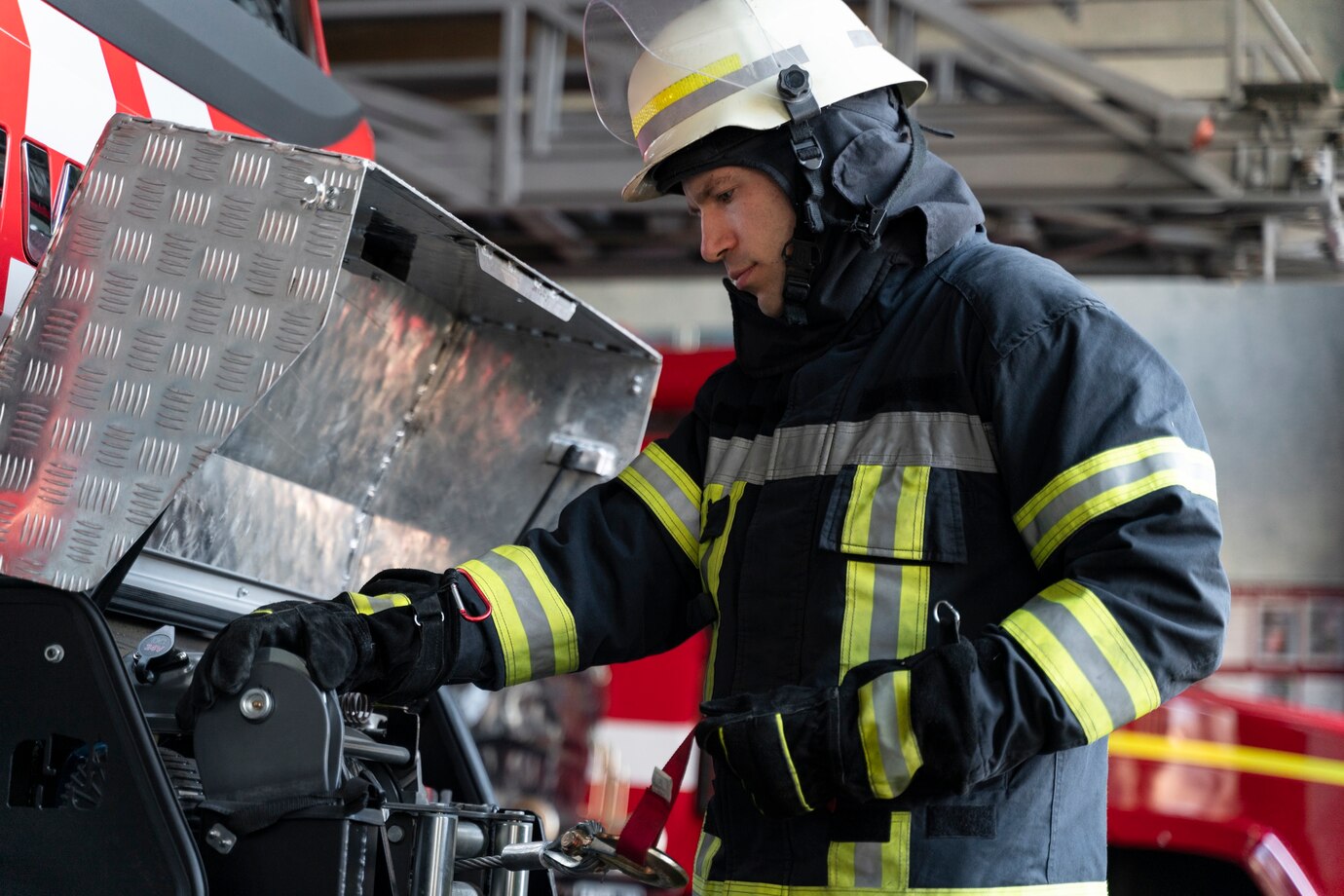Fire safety regulations are critical for ensuring the safety of employees, customers, and property. In Abu Dhabi, these regulations are designed to prevent fire hazards and respond effectively to emergencies. This guide aims to help businesses understand the essential fire safety regulations in Abu Dhabi and the training required to comply with them.
Importance of Fire Safety Regulations
Fire safety regulations play a vital role in safeguarding lives and property. In a bustling environment like Abu Dhabi, where businesses operate in various sectors, understanding and adhering to these regulations is paramount. Compliance not only protects employees and customers but also helps businesses avoid legal penalties and financial losses.
Key Regulatory Bodies
The primary authority governing fire safety in Abu Dhabi is the Abu Dhabi Civil Defence. They enforce fire safety regulations and standards, ensuring that all buildings, including commercial establishments, adhere to strict safety measures. Businesses must stay informed about the regulations set forth by this authority and implement the necessary measures to ensure compliance.
Essential Fire Safety Regulations
Building Codes and Standards
One of the fundamental aspects of fire safety regulations in Abu Dhabi is adherence to specific building codes and standards. These codes dictate the design, construction, and occupancy of buildings to minimize fire risks. Some key aspects include:
- Fire-resistant materials: Buildings must use materials that meet fire resistance standards, reducing the risk of flames spreading quickly.
- Emergency exits: Businesses must have clearly marked and accessible emergency exits, ensuring that occupants can evacuate safely in the event of a fire.
- Smoke alarms and fire detectors: Installing and maintaining smoke alarms and fire detectors is mandatory in commercial properties to provide early warnings in case of fire.
Fire Safety Equipment
Businesses are required to install and maintain various fire safety equipment, including:
- Fire extinguishers: Properly maintained fire extinguishers should be available on-site, strategically placed for easy access.
- Sprinkler systems: Many businesses are required to install automatic sprinkler systems to help control fires before they escalate.
- Emergency lighting: In the event of a power outage during a fire, emergency lighting is essential for guiding occupants to safety.
Training Requirements
Fire Safety Training
Understanding fire safety regulations is not just about compliance; it also involves training employees to respond effectively to fire emergencies. Fire safety training is essential for all staff members to equip them with the knowledge and skills necessary to act during a fire. This training typically covers:
- Fire prevention: Understanding the causes of fires and how to prevent them in the workplace.
- Evacuation procedures: Knowing the best routes and methods for evacuating the building safely.
- Use of fire extinguishers: Training employees on how to operate fire extinguishers and when to use them.
Fire Warden Training
Designating fire wardens within the workplace is crucial for effective fire safety management. Fire warden training prepares selected employees to take charge during fire emergencies. Key responsibilities of fire wardens include:
- Monitoring compliance: Ensuring that fire safety equipment is functional and accessible.
- Leading evacuations: Assisting in the safe evacuation of employees and visitors during a fire incident.
- Communication: Acting as a liaison between employees and emergency services during a fire.
First Aid Training
In addition to fire-specific training, businesses should also prioritize first aid training for their staff. This training ensures that employees can respond effectively to injuries that may occur during a fire. Key components of first aid training include:
- Basic life support: Teaching employees how to perform CPR and assist individuals in distress.
- Wound care: Training on how to treat burns and other injuries related to fire incidents.
Fire Fighting Training
For businesses that handle flammable materials or operate in high-risk environments, fire fighting training is essential. This training equips employees with the skills to fight small fires safely and effectively before they escalate. Key aspects of fire fighting training include:
- Understanding fire classes: Learning about different types of fires and the appropriate methods for combating them.
- Hands-on practice: Gaining practical experience in using fire extinguishers and other fire-fighting equipment.
Engaging Safety Consultants in Abu Dhabi
To navigate the complexities of fire safety regulations, businesses in Abu Dhabi can benefit from the expertise of safety consultants in Abu Dhabi. These professionals offer valuable insights and guidance on compliance, helping businesses implement effective fire safety measures. Key services provided by safety consultants include:
- Risk assessments: Conducting thorough evaluations of potential fire hazards within the workplace and recommending mitigation strategies.
- Regulatory compliance: Assisting businesses in understanding and adhering to local fire safety regulations.
- Training programs: Developing tailored training programs for employees to enhance fire safety awareness and preparedness.
Conclusion
Understanding fire safety regulations in Abu Dhabi is essential for businesses to protect their employees, customers, and property. By adhering to these regulations and investing in comprehensive training programs, businesses can significantly reduce the risk of fire incidents. Engaging safety consultants can further enhance compliance efforts, ensuring a safe working environment. Remember, a proactive approach to fire safety is not just a legal obligation; it is a commitment to the well-being of everyone within the workplace.


